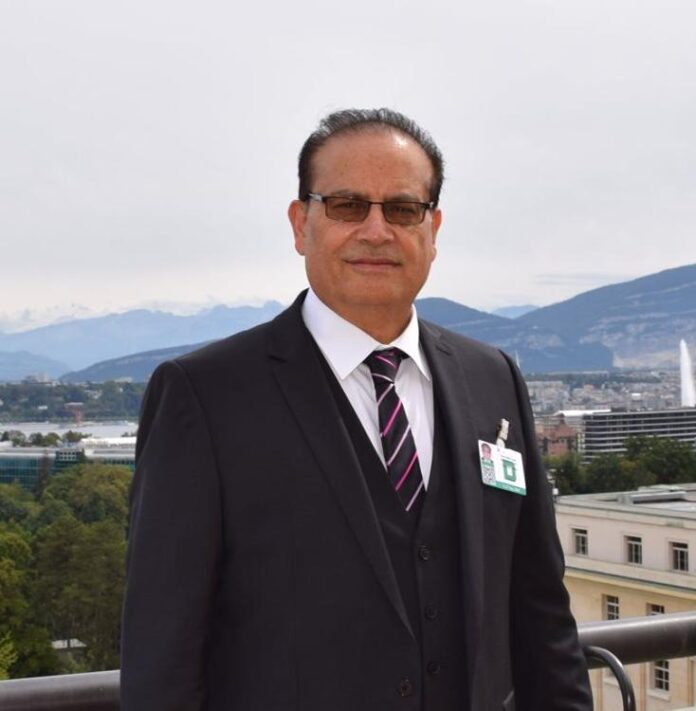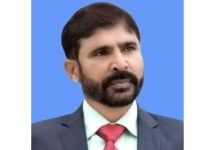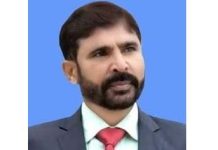By: Qamar Bashir
Macomb, Detroit, Michigan
The confirmation hearing for Secretary of Defense nominee Pete Hegseth took place on January 10, 2025, in the Senate Armed Services Committee chambers in Washington, D.C. During the proceedings, Hegseth and senators painted a stark picture of the challenges facing the U.S. Armed Forces. A recruitment crisis, with a 42,000-person deficit, has left the military struggling to meet its personnel needs. Meanwhile, costs continue to rise, readiness declines, and morale falters.
Hegseth highlighted the Pentagon’s systemic failures, including its repeated inability to pass audits—a glaring inconsistency when compared to the stringent standards imposed on businesses seeking to contract with the Department of Defense.
A deeply concerning issue also emerged during the hearing regarding the treatment of service members under the Biden administration. Hundreds of thousands of military personnel who refused experimental and under-trial COVID-19 vaccine mandates were discharged, while those who experienced harmful side effects were left without compensation or support for themselves or their families. These vaccines, which would typically have undergone extensive animal trials under controlled conditions, were fast-tracked and wrapped in secrecy, with trial data hidden for 75 years.
Pete Hegseth describes how he was banned from serving with his National Guard unit for a tattoo of the Jerusalem Cross, the same Christian symbol that was on the floor of the National Cathedral during Jimmy Carter’s funeral.
In a powerful rebuttal to criticisms and personal attacks that he fathered a child out of wedlock only a two month ago, Hegseth reinforced his outsider status as an asset, not a liability. “For decades, we’ve placed individuals with perfect résumés atop the Pentagon, and where has that gotten us?” he asked, pointing to inefficiencies and weakened readiness as evidence of the need for change.
He added, nearly every major defense weapons system suffers from excessive costs, underperformance, and significant delays, eroding the military’s competitive edge. Stagnant innovation and weakened standards have devalued meritocracy, while divisive policies like Diversity, Equity, and Inclusion (DEI) have further undermined morale. This environment has emboldened adversaries like China and Russia, increasing global instability.
He referred to the “valley of death” in the defense industry identifying critical gap where new companies struggle to transition innovative technologies from prototypes to deployment. This challenge arises from funding shortages, complex procurement processes, and uncertainty about military adoption, compounded by rigorous testing requirements and competition from established contractors.
He also alluded to nuclear triad a three-pronged military strategy designed to ensure a nation’s nuclear deterrence and survivability in the event of an attack comprising land-based intercontinental ballistic missiles (ICBMs) for rapid response, submarine-launched ballistic missiles (SLBMs) for stealthy and survivable retaliation, and strategic bombers that provide flexibility and recall capability. He said that Nuclear Tirad fell far short of its lethally, sustainability and efficacy compared to what it is being perceived by the adversaries.
During his speech Pete expressed his resolve to tackle the 42,000 recruitment deficit, end the divisive DEI, fight for service members wrongfully purged by Biden’s unconstitutional vaccination mandates, and restore the lethality in our armed forces.
Hegseth outlined a clear vision to revitalize the U.S. military, emphasizing three core objectives. First, he pledged to restore the warrior ethos within the Pentagon which are based upon unwavering commitment to mission success, perseverance in the face of adversity, loyalty to comrades, and integrity in action. Key principles include always placing the mission first, refusing to accept defeat or quit, never leaving a fallen comrade, and upholding the values of honor, courage, and resilience. This ethos fosters trust, discipline, and unity, ensuring readiness and effectiveness in all situations.
Second, he committed to rebuilding the military by aligning capabilities with modern threats. This includes revitalizing the defense industrial base, reforming the acquisitions process to eliminate inefficiencies like the “valley of death” for new defense companies, modernizing the nuclear triad, and ensuring the Pentagon passes audits. Rapid deployment of emerging technologies was also a key priority.
Third, Hegseth stressed the need to reestablish deterrence through the defense of U.S. borders, skies, and homeland, while strengthening partnerships and deterring aggression in the Indo-Pacific, particularly from Communist China.
During the hearing, the testimonies given by Pete primarily focused on making the military machine effective and lethal and partially expressed foreign ambitions of the USA. He emphasized an America First approach to national security, achieving peace through strength while responsibly ending conflicts to focus resources on larger threats.
Pete specifically highlighted persistent and robust aggression in the Indo-Pacific, identifying Communist China as the primary adversary. Notably, he referred exclusively to China, seemingly downplaying Russia or any other nation as a significant threat. This focus reflects a broader strategic shift in U.S. defense policy, where China has been elevated to the position of the primary geopolitical competitor.
China’s rapid military modernization, economic expansion, and pursuance of its economic interests in the Indo-Pacific perhaps have positioned it as a more comprehensive and long-term rival to U.S. global influence. While, China has repeatedly declined this “No. 1 enemy” designation, instead emphasizing cooperation, shared prosperity, and a mutually beneficial future—rhetoric that contrasts sharply with U.S. perceptions of its strategic ambitions.
Ideally, the United States should reconsider its defense policy, which has long relied on identifying adversaries as a catalyst for building its military-industrial complex and pursuing global dominance. This strategy, aimed at maintaining unrivaled military, economic, and geopolitical superiority, needs to evolve in the face of a rapidly changing world. Now is the time to reassess this approach and collaborate with global partners to establish a foundation for permanent peace, built on shared values, equitable distribution of resources, and mutual prosperity.
It is crucial to recognize that the combined destructive power of all nations is sufficient to annihilate the planet many times over. This stark reality underscores the urgency of ending the cycle of creating enemies, which invariably leads to conflict and instability. Instead, the focus should shift toward fostering cooperation, addressing shared challenges ensuring a brighter, more prosperous future for all. By embracing collaboration over confrontation, the United States can lead the way in shaping a world where security and growth are achieved not through dominance, but through interdependencies, unity and shared progress.
By: Qamar Bashir
Press Secretary to the President (Rtd)
Former Press Minister at Embassy of Pakistan to France
Former MD, SRBC

















